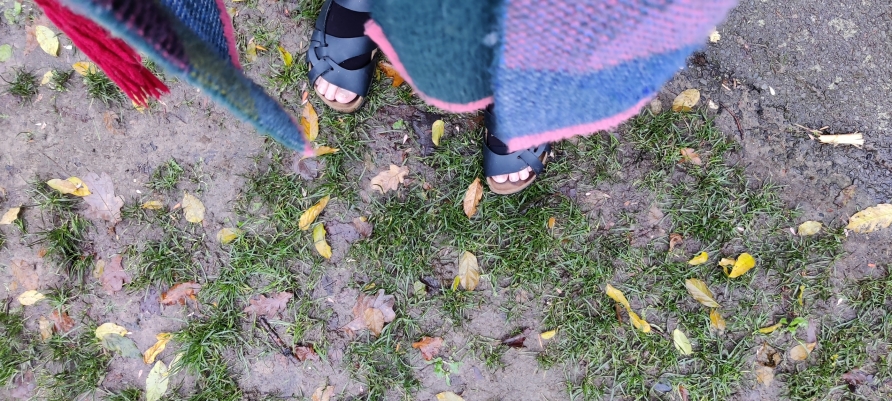Writing about being a portfolio worker is something I have wanted to do for a while. I recently shared my story of my journey to becoming a Stories Officer. In this story, I focused on a small experience in my working life, but a lot of what and where I have worked are hidden from this. Not hidden in a purposeful way, more because they are a separate story and I’d like to share that with you now.
I’m writing this blog to share what a portfolio worker is and how we work. I don’t meet many of us but know there has to be many of us out there. And I thought hiring managers might find it to be an interesting story.
Firstly, what does portfolio worker mean? To me it describes someone who has combined freelance work, part time jobs, and even non-executive (paid or voluntary) roles. It describes me. I have worked in administration, press and pr, marketing, communications, research, storytelling and equity, diversity and inclusion. I have worked in corporate business, charities, museums, libraries and archives, universities, and small businesses.
Secondly, how did I become a portfolio worker? Well, I became a portfolio worker because many roles I wanted to do were part time, and also later in life this type of working fitted around chronic health conditions. Since completing a Master of Arts in Museum Gallery Management at City University, London in the 90s I have worked in part time in roles. This has meant I was working full time hours. I remember, working for an arts sponsorship company, Museum of London and Sainsbury’s all at the same time. As you can see, a real mixture of organisations. The roles varied from personal assistant, press office assistant to pricing control (I was one of the people who put the prices and offer tickets on the shelves in a supermarket). I then moved into working for a finance crisis strategy communications company (this paid the bills and helped me save for a deposit to buy a house) and set up my own business as a curator (I trained in Fine Art – installation- at degree level). These two opportunities incorporated storytelling; telling stories of corporate annual reports and telling themed stories through artists work (exhibited in private and public organisations).
Reflecting at 47, nothing really has changed. I have grown in myself through life and work experiences. I now understand that the skills and knowledge I have gained over the years, can be either focused on a specific role or part of a role. For example, I am the Stories Officer at the Taskforce for Lung Health and in addition an Equity, Inclusion, Diversity (EDI) consultant for Asthma UK, British Lung Foundation. In both of these roles, storytelling is important. In the Taskforce role, I write stories about people with lived experience of lung conditions in order to influence policy makers to support lung health care in England. In the consultant EDI role, I tell stories of what I hear and learn on EDI from attending conferences and events. I recommend that we share stories as we do for the Taskforce to influence cultural and societal change. I tell stories to share what we should and could be doing and share lived experience stories as evidence. So, even though the roles are very different in job title I have to have storytelling skills for both.
Thirdly what are the benefits of being a portfolio worker? Well, where do I start? We are very adaptable, as we often have to attend meetings and work around one subject and then maybe the next hour we are working on a different subject and with different people.
We are agile, often having to change direction of work quickly and always strategically for whomever we are working for. We have often been involved in different projects, worked with different levels of teams (senior to junior), worked with the public and for the public, we’ve project managed varying project briefs and work plans, so we have a large pool of understanding of how organisations work and what is needed to deliver deadlines, strategies and cultural change. We are creative, I am not sure what the statistics might be for portfolio workers being neurodiverse, but I have a short-term memory which is similar to dyslexia and I find my creative thinking allows me to help organisations see the bigger picture on a subject – I am often called a ‘magpie’ as I gather a lot of research, articles etc. to inform working briefs, strategy and policy development and future planning. Creatively learning from other organisations and industries is something I see clearly and feed into any work undertaken.
Lastly, what are the pitfalls? Yes, there are pitfalls. And that’s the reason I have been wanting to write about portfolio working for a while. Sometimes, we are seen as not having a focus, or that been multiskilled means we don’t have a clear career path in mind. I believe in knowledge transfer, and I am not sure if it because of the way my brain works like a magpie, but I can see how all our skills link together and are one skill in itself. We can then apply these skills to different but appropriate job roles. We might have a large CV that shows all of the skills we have, for example mine is split into volunteer engagement, EDI, research, curating, and communications. This shows how agile a portfolio worker is.
So, if you are a hiring person and are looking at a portfolio worker when selecting people for roles you have advertised for, please listen to the stories around the variety of work we have undertaken. And want to find out about those stories. What do the stories tell you about a person? Are they agile, creative, good project managers, and ultimately are we good value for money? A-ha I hear you say! because if we look at it from a business perspective, hiring someone who understands many aspects of an organisation and has many skills will add value to the role and your organisation. I overdeliver in any role and have an understanding of the many aspects of an organisation’s role in society and its role for employees to be able to bring themselves to work.

